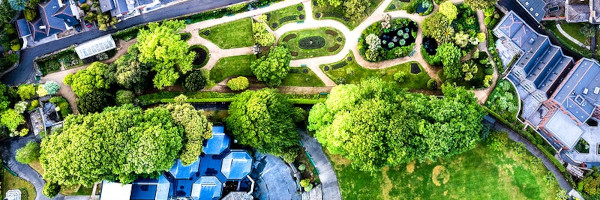Green Horizons
| Green Horizons | |
|---|---|

| |
 Zero Carbon Urban Design | |
| Team Organizations | Green Urban Design |
| Team Leaders | Wilfred Pinfold |
| Participating Municipalities | Portland OR |
| Status | Announcement"Announcement" is not in the list (Launched, Implemented, Development, Ready for Public Announcement, In Deliberations, Negotiations, Concept only Stage, Master Planning) of allowed values for the "Status" property. |
| Document | None |
Description
The Green Horizons Initiative is a multifaceted effort to foster economic vitality, environmental sustainability, and community resilience in the Urban Flood Safety & Water Quality District (UFSWQD) communities of North Portland. It encompasses projects like the Workforce Development and Vehicle Electrification Center, which aims to create jobs in emerging technologies, transition to a greener economy, and enhance community infrastructure, and the Community Engagement and Resilience Program, which focuses on empowering under-resourced neighborhoods through education, capacity-building, and strategic investments. By integrating workforce training, sustainable development, cultural competency, and environmental justice, the initiative seeks to leverage electrification and infrastructure improvements to build equitable, resilient, and vibrant mixed-use neighborhoods.
Challenges
The Green Horizons Initiative faces several challenges, including economic instability and environmental vulnerabilities in under-resourced North Portland communities, such as air pollution from industrial zones, limited green spaces, and insufficient public transportation. These issues hinder access to job opportunities and essential services, exacerbating social isolation and economic inequities. The area’s mixed residential, commercial, and industrial zones lack sufficient business and recreational options, while looming gentrification threatens to displace long-time residents. Additionally, addressing natural hazards like flooding, fostering equitable engagement across diverse stakeholders, and building the capacity of communities to leverage electrification investments require overcoming significant logistical, environmental, and socio-economic barriers.
Solutions
The Green Horizons Initiative addresses these challenges through strategic investments in workforce training, infrastructure, and community engagement to create equitable, sustainable neighborhoods. It proposes establishing a Workforce Development and Vehicle Electrification Center to train residents in emerging technologies like electric vehicle systems and clean energy, while fostering partnerships with industry and government to create jobs and reduce carbon emissions. The initiative also includes a Community Engagement and Resilience Program to empower residents through culturally competent workshops, capacity-building tools, and digital platforms, ensuring that development reflects community needs and values. By integrating electrification, multi-modal transportation, and resilience planning, the initiative aims to reduce environmental vulnerabilities, enhance accessibility, and support economic growth without displacing existing residents.
Major Requirements
The Green Horizons Initiative requires extensive collaboration among industry, government, nonprofits, and community stakeholders to ensure its goals of economic growth, sustainability, and equity are met. It demands comprehensive planning, including site assessments, hazard mitigation strategies, and integration of EV charging and solar infrastructure. Successful implementation relies on community-led engagement workshops, cultural competency training, and accessible digital platforms to involve diverse voices. Additionally, it requires the development of advanced vocational training programs in emerging technologies and the establishment of benchmarks and accountability measures through Holistic Key Performance Indicators. Substantial investments in infrastructure, transportation, and workforce programs are essential to address environmental challenges, economic disparities, and resilience needs.
Performance Targets
| Key Performance Indicators (KPIs) | Measurement Methods |
|---|---|
|
|
Standards, Replicability, Scalability, and Sustainability
{{{standards}}}
Cybersecurity and Privacy
{{{cybersecurity}}}
Impacts
{{{impacts}}}
Demonstration/Deployment
{{{demonstration}}}
Projects Related to this Initiative

|
Community Engagement and Resilience Program | |
| This project aims to address the pressing challenges faced by economically disadvantaged and environmentally vulnerable communities in North Portland. These communities struggle with limited access to jobs, essential services, and face environmental hazards such as air pollution and lack of green spaces. The program seeks to empower local residents and businesses by providing workforce training in sustainable fields like vehicle electrification, energy efficiency, and urban design, while also fostering community-led engagement to improve resilience and promote equitable economic opportunities. | ||

|
EcoMotion: Electrifying Washington Park's Circulator for a Greener Future | |
| This project converts five existing Ford transit buses to electric power. This conversion not only reduces cost over buying new it ensures the gasoline engine is removed from the road and recycled instead of being sold for another use. It also retains the chassis and other equipment saving emissions over a new purchase. | ||

|
Green Horizons: Urban Workforce Development and Electrification Center | |
| The Green Horizons Workforce Development and Vehicle Electrification Center is pursuing a planning grant that aims to establish a positive sustainable economic impact for the Multnomah County Drainage District community. This project will produce an assessment plan for a combined workforce training and commercial grade EV fleet conversion facility. | ||